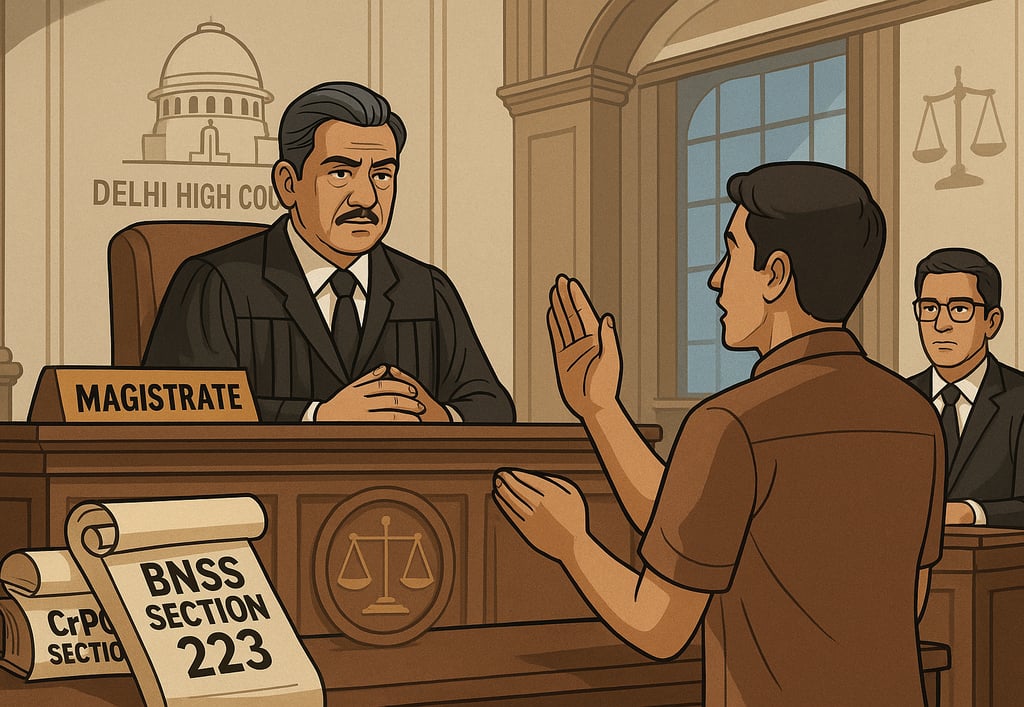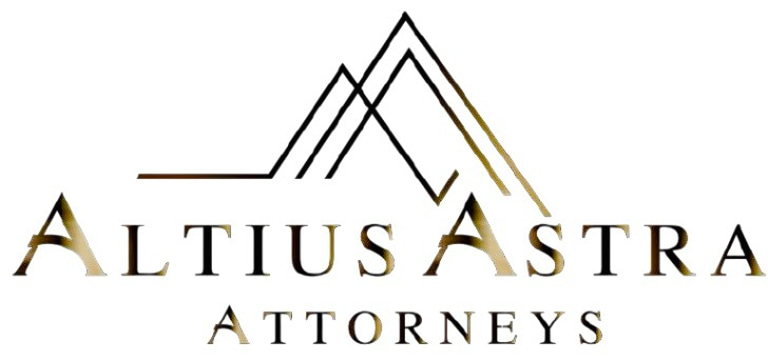Delhi High Court’s Landmark Interpretation of Section 223 BNSS: A New Safeguard for the Accused?
Delhi HC interprets Section 223 BNSS: Magistrates must hear the accused before cognizance. A landmark shift in India’s criminal procedure.
Adv Nadeem Saifi | Partner | Altius Astra Attorneys
7/29/20252 min read


In a judgment that could reshape the procedural landscape of criminal complaints in India, the Delhi High Court has ruled that no cognizance can be taken under Section 223 of the Bharatiya Nagarik Suraksha Sanhita (BNSS) without first giving the accused an opportunity to be heard. This ruling introduces a striking procedural shift from the Code of Criminal Procedure (CrPC) and raises an important question: Is this the beginning of a more balanced pre-trial framework?
Why This Ruling Matters
For decades, the CrPC allowed magistrates to take cognizance of complaints without any input from the accused. Under Section 200 CrPC, the accused only came into the picture after summons were issued. But with BNSS Section 223, the High Court has clarified that the accused now has a right to be heard before cognizance itself.
This change doesn’t merely tweak procedure, it potentially alters the balance of power in criminal litigation. For businesses and individuals frequently targeted by private complaints, this safeguard could be a vital shield against frivolous prosecution.
The Court’s Analysis: A Marked Departure from CrPC
Justice Neena Bansal Krishna, while analyzing Section 223 of the BNSS, observed that while the new law carries forward the procedural framework of Section 200 CrPC, it introduces a "significant departure":
“After the complainant and any witnesses, as the Court may desire, have been examined, the accused must be given an opportunity of being heard before cognizance is taken.”
Under CrPC, the accused had no say until the issuance of summons. But now, the first proviso to Section 223(1) BNSS expressly mandates notice to the accused before cognizance, embedding a new layer of procedural fairness.
Implications for Criminal Procedure
By mandating pre-cognizance notice, the Court has effectively curbed misuse of private complaints, a safeguard that could prevent harassment through baseless litigation.
The ruling ensures the accused is no longer a silent spectator. They can present their side at an earlier stage, allowing courts to filter out weak or malicious complaints.
In commercial disputes often converted into criminal complaints, this procedural change could deter complainants from misusing the criminal process for arm-twisting tactics.
The Case That Sparked the Debate
This interpretation arose in Brand Protectors India Pvt. Ltd. v. Anil Kumar, where the complainant challenged an order requiring that the accused be heard before cognizance. The company argued that the Metropolitan Magistrate erred in recording pre-summoning evidence without notice to the accused and sought partial relief.
However, the Delhi High Court rejected the plea, holding that the Sessions Court’s interpretation was correct and that the trial court’s order suffered no infirmity. In essence, the accused’s right to be heard before cognizance is now a binding procedural requirement.
This ruling sets a strong precedent for pre-cognizance participation of the accused and could fundamentally change how magistrates approach complaints under the BNSS.
While critics argue this could slow down the complaint process, supporters view it as a much-needed safeguard against prosecutorial abuse.
The Delhi High Court’s ruling under Section 223 BNSS represents a new era of procedural fairness in criminal law. It not only redefines the rights of the accused but also sends a clear signal—BNSS is not just a cosmetic change; it’s a structural reform with far-reaching consequences.
Citation:
Brand Protectors India Pvt. Ltd. v. Anil Kumar, Delhi High Court, 2025.
Altius Astra Attorneys
A premier law firm based in Delhi, India, offering legal representation across various practice areas for citizens rights and interests.
© 2025. Altius Astra Attorneys. All rights reserved.
Contact Us
📞 9899290789, 9818786756
📧 contact@altiusastra.com
3C-ED Block, Madhuban Chowk, Pitampura, Delhi-110034
DISCLAIMER
